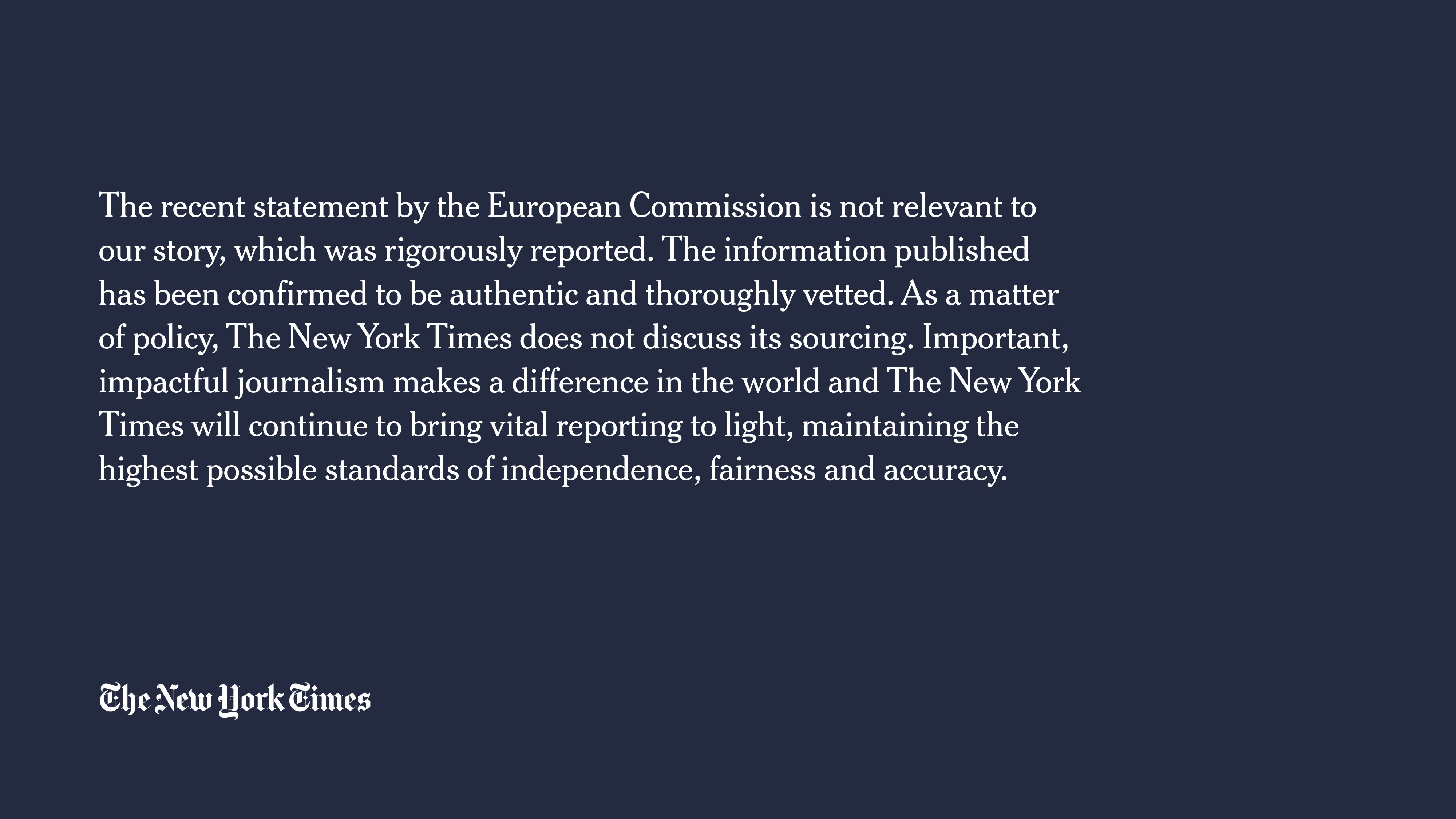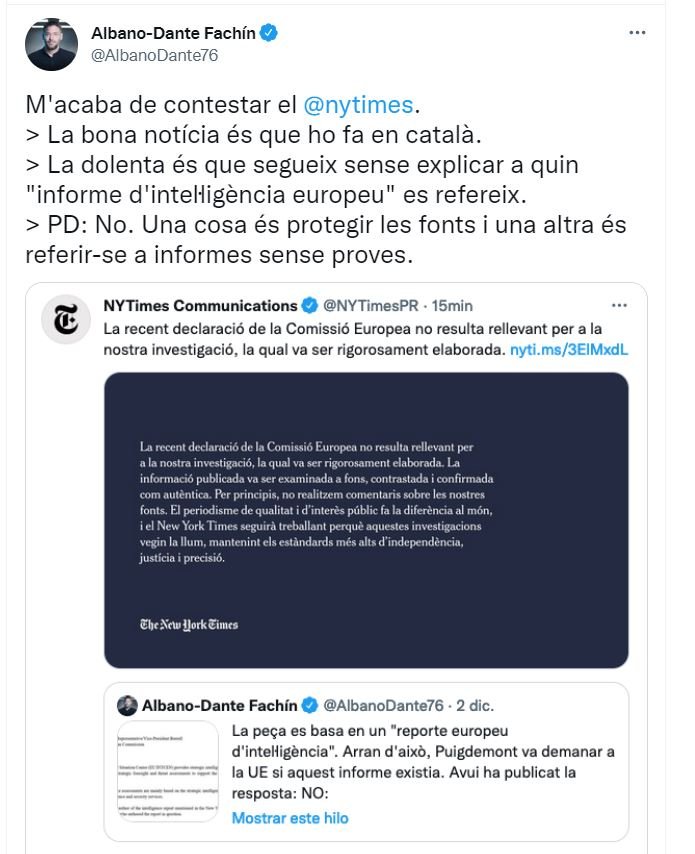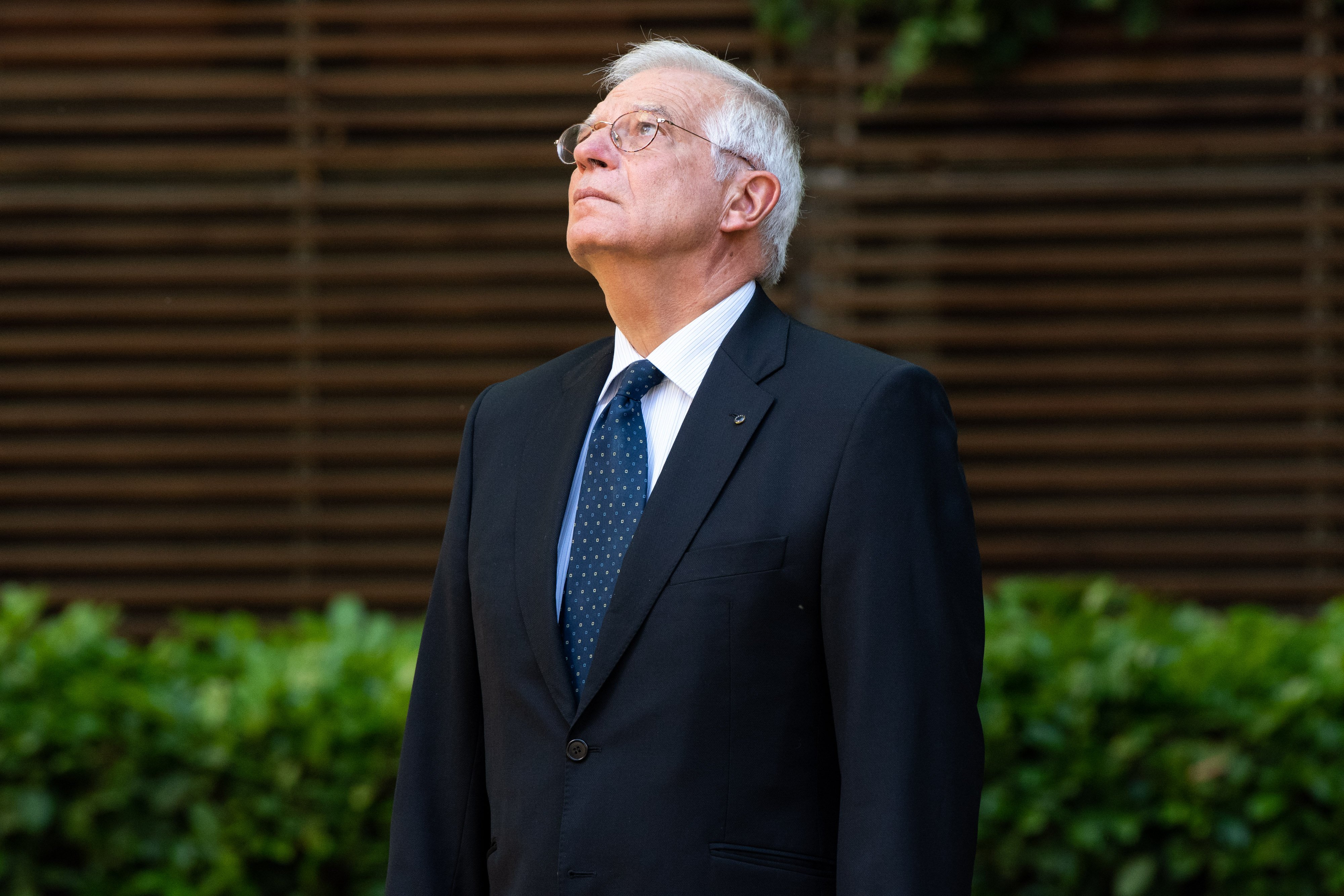An exchange of accusations has taken place between The New York Times and the European Commission over a supposed report on the phantom plot linking Catalan president in exile Carles Puigdemont and his staff to Russia to spy on the EU. Yesterday, it was the European Union's foreign policy chief, Josep Borrell, who had no choice but to acknowledge, in response to a parliamentary question from Puigdemont and fellow MEPs Toni Comín and Clara Ponsatí, that this alleged pro-independence espionage did not exist and they knew nothing about any report on it.
Thus, the EU discredited the report by the US daily which allegedly "uncovered" a non-existent plot within the so-called Operation Volhov, which also involved the director of the exiled president's office, Josep Lluís Alay. This afternoon, The New York Times has come out to back the worthiness of its sources, maintaining its faith in the credibility of a story that the latest developments have undermined.
The 'Times' responds
The newspaper issued a brief statement and did so in three languages: English, Spanish and Catalan. It reads: "The recent statement from the European Commission is not relevant to our story, which was rigorously reported. The information has been confirmed as authentic and thoroughly vetted. As a matter of policy, we do not comment on our sourcing. Important, impactful journalism makes a difference in the world, and The New York Times will continue to bring vital reporting to light, while maintaining the highest possible standards of independence, fairness, and accuracy."

The English version of The New York Times' trilingual statement in reply to the European Commission
The statement was signed by the newspaper and attached to the report, without altering a single comma of the story, some of whose content coincided with a report leaked by the Spanish Civil Guard which also contained errors, such as confusing a book translated by Alay from Russian to Catalan - extracted from his mobile phone when he was arrested - with an actual communication with Russian spies. This was repeatedly denounced by Alay, expressing his surprise at the magnitude of the error, which some commentators regarded as a comic and absurd reflection on the Spanish judicial investigation.
However, sources consulted directly at the US newspaper by ElNacional.cat reiterate that the contacts made to verify the information were direct and they do not understand how "certain people" can now deny what "they themselves acknowledged" at the time. And one of the two journalists who signed the article, José Antonio Bautista, also went on Twitter, sticking to his guns: "Documented, accredited, verified and contrasted information, with the appropriate nuances and with the precision, time and level of dedication that few newspapers can afford."
Despite being recognized as a fake by the European Commission itself now, with the figure of foreign affairs chief Josep Borrell behind it, the impact of the Times report - when it appeared - served to initiate a European Parliamentary inquiry into Carles Puigdemont. And given the clear inconsistencies between the claims, Puigdemont's lawyer Gonzalo Boye has called for the matter to be resolved by shedding light on the evidence: "It would be very interesting for this alleged report to be put on the table... It's already very late."
"The good news: The NY Times used Catalan"
Catalan journalist Albano Dante Fachin responded to the US newspaper's statement on Friday evening by asserting that it was not necessary for the journalists to reveal their sources, but rather to give credibility to the nature of the document that they had claimed as a "European intelligence report", when the EU itself has now denied the existence of any such report.
Fachin had several several tweets on Thursday stressing that EU diplomacy has no report on alleged connections between Catalonia and Russia in relation to the independence process. Today, when the Times sent its statement on the matter, Fachin said there was good and bad news: "The good news is that they said it in Catalan. The bad news is that they still don't explain which European intelligence report they are referring to." And he clarifies this: "One thing is to protect your sources and another is to refer to reports without evidence".


